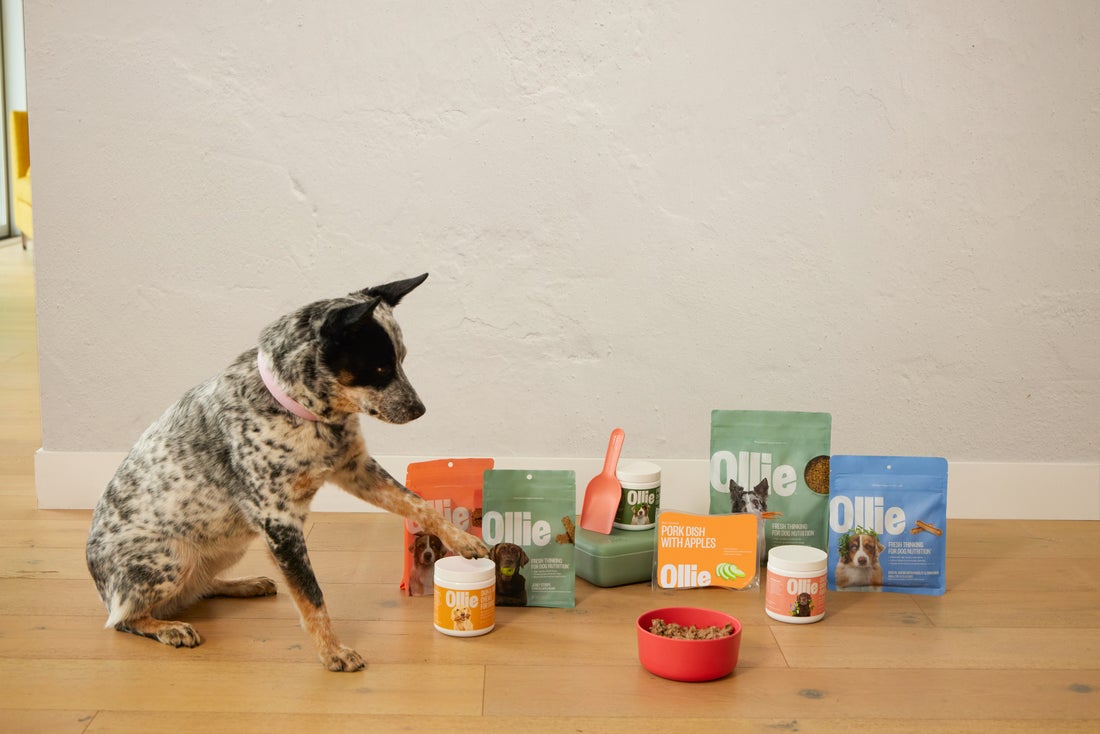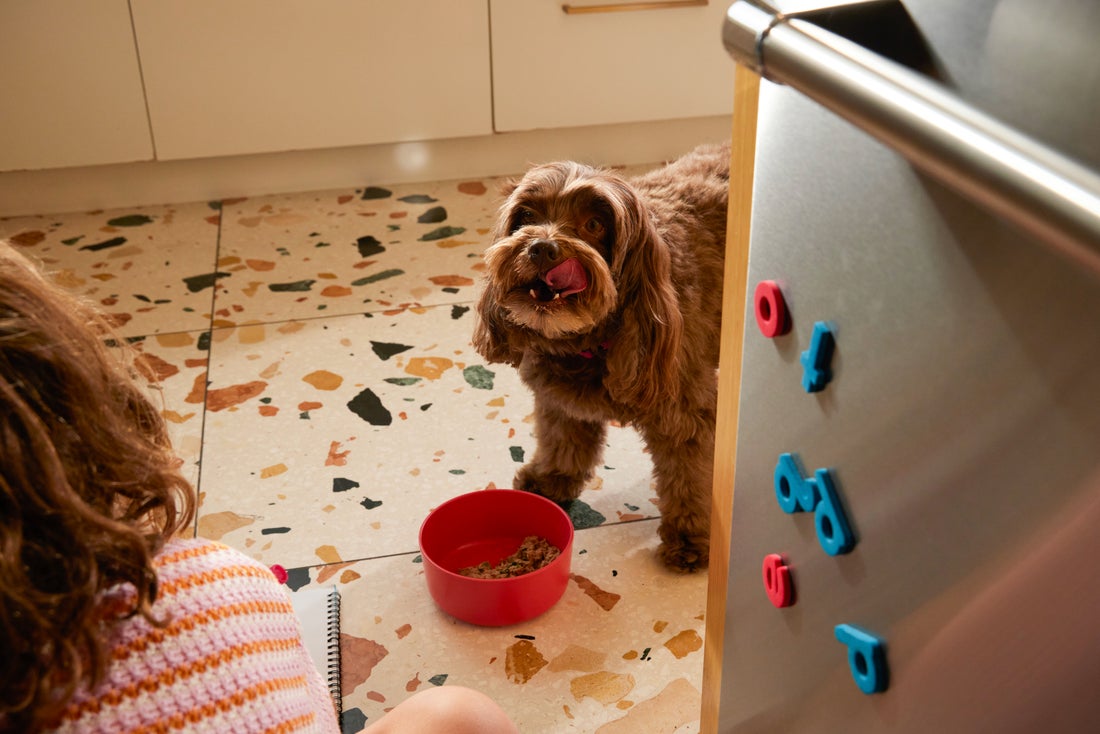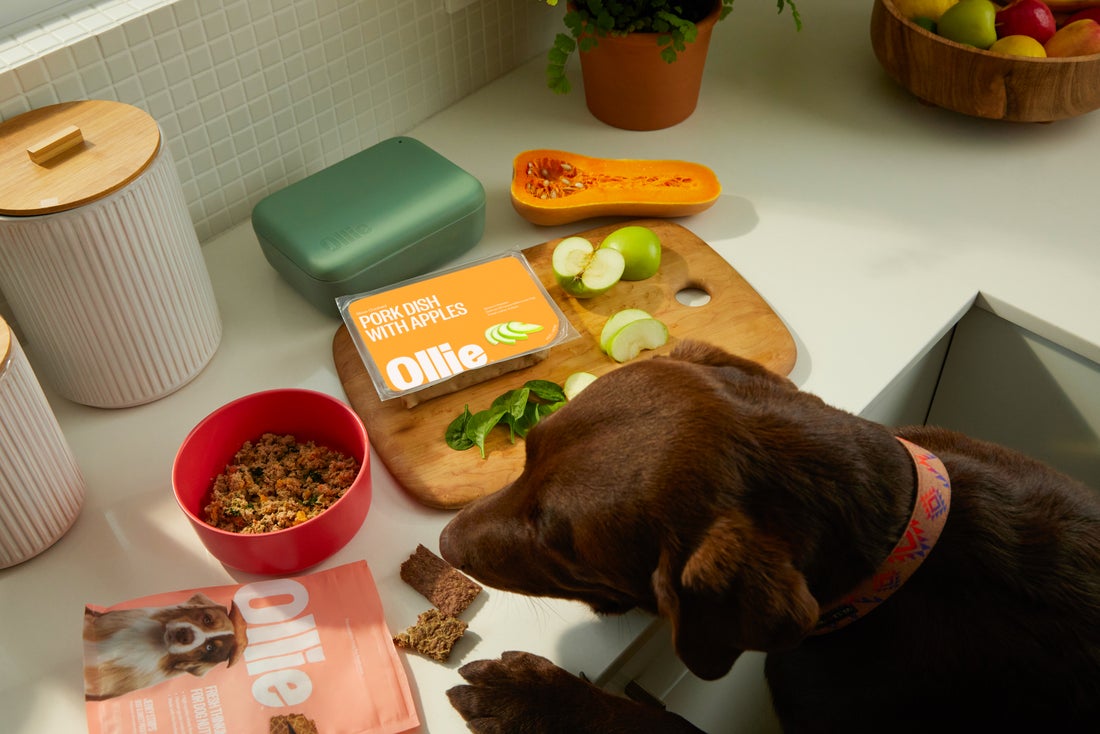Hey Ollie blog readers! We’re offering you an exclusive 60% OFF your starter box! Try now!
If you’ve ever taken your dog to the vet for a skin irritation, suspicious bump or even a cracked nail, then you know how quickly things can add up. Medication alone might cost a few hundred, never mind what you have to pay if your pup ends up needing surgery—a torn ACL from a mistimed jump off the couch can get pricey. You’ve probably heard of dog insurance, but you might be wondering if it’s worth it. (Plus, who wants to deal with another insurance company when managing your own is enough of a headache?) We break down the essentials for canine coverage so you don’t freak out the next time they scarf down a piece of chocolate:
Enroll early
One of the most important things to know about pet insurance? Pre-existing conditions aren’t covered, which is why you ideally want to get your pup on a plan when they’re younger, before they have any chronic issues. (Most companies won’t even take pooches past the age of 14.) If you have a healthy mixed breed dog, you can expect to pay about $38 per month for major medical coverage, says Nick Braun, founder of PetInsuranceQuotes.com. Purebreds cost more because of their high rates of hereditary conditions. For example, an English Bulldog, a breed prone to breathing problems and skin allergies, will run you an average of $52 per month. And regardless of breed, as your dog ages, your monthly rate will go up by 5 to 10 percent each year.
Check the annual limit
Most policies have an annual maximum payout that could be as low as $2,500. Braun recommends opting for a policy that has an annual limit of at least $10,000, enough to cover most major medical issues that could come up—like surgery for your pup’s torn ACL, which could total close to $6,000. While deductibles start around $100, Braun says a deductible of $200 to $500 will give you the best value. (The lower your deductible, the higher your monthly payments will be.)
Consider wellness coverage
Major medical plans don’t include things like routine vaccinations, flea meds, dental cleanings and blood panels. So if you spend over $400 a year on these costs, it may be worth it to add wellness coverage to your pet’s insurance, Braun says. Of the twelve companies that offer pet insurance (the biggest are Nationwide, Healthy Paws and Trupanion), six of them give you a wellness option. For example, Nationwide (formerly Veterinary Pet Insurance or VPI) offers a Whole Pet With Wellness plan, which averages $65 per month with a $250 deductible and no annual limit.
Prepare to pay out of pocket
Even with pet insurance, you’ll most likely have to pay up at the vet and be reimbursed later. The one exception is Trupanion, which will pay vets directly if they’re enrolled in the company’s program. Still, Braun says filing a claim and being reimbursed (typically 90 percent of the total bill) is the industry standard. This means more paperwork, more follow-up, more hassle. Fortunately, a number of companies, including Healthy Paws, Pet Plan and Figo, have tried to simplify the process by allowing you to snap a picture of your bill and submit claims via your smartphone.
The Ollie blog is devoted to helping pet parents lead healthier lives with their pups. If you want to learn more about our fresh, human-grade food, check out MyOllie.com.
Tagged As:

The nutrition your dog needs,
the food they want.

Enjoying our articles? Subscribe our Newsletters and get new articles directly to your inbox
You might also like
18 July 2025
6 MINS READ
Can You Mix Fresh Dog Food With Kibble?
If you’re feeding your dog kibble but want to upgrade their bowl, you’re not alone. Many pet parents ask if they can mix fresh dog food with kibble to get some of the benefits of fresh food wi…
by Ollie Pets
18 July 2025
5 MINS READ
Does Fresh Dog Food Help With Weight Loss?
If you’ve noticed your dog carrying a few extra pounds, you’re not alone. According to the Association for Pet Obesity Prevention, over half of dogs in the U.S. are overweight or obese. Extra …
by Ollie Pets
18 July 2025
4 MINS READ
Is Fresh Dog Food Cooked or Raw?
When you hear “fresh dog food,” it’s normal to wonder if that means raw meat or something cooked. After all, fresh just means it’s not dry kibble or canned food packed with preservatives. …
by Ollie Pets







